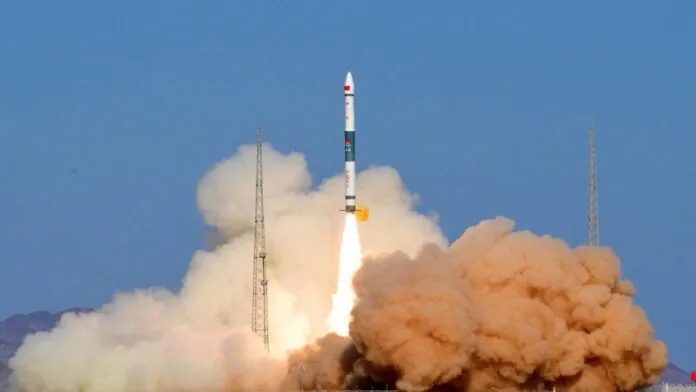© ROOT-NATION.com - Use of content is permitted with a backlink.
China does not let the world forget that it is an active participant in the race to create hypersonic rockets: a team from the School of Aeronautics and Astronautics of Northwestern Polytechnical University was able to successfully launch Feitian-1, a unique Rocket-Based Combined Cycle (RBCC)-propelled vehicle.

Although China is one of the three leading contenders for a practical hypersonic weapon system, obtaining reliable data on China’s hypersonic program is very difficult. China is keen to keep its roadmap under wraps, and the bits of information that do emerge come through state-controlled media or are couched in statements such as that the test was for an orbital space plane.

What is particularly interesting about the Feitian-1 launch is that it uses an RBCC engine to give it a speed in excess of Mach 5. The RBCC engine is a combination of an air-breathing ramjet, air-breathing scramjet, and ducted rocket. As the aircraft accelerates, the engine switches from one mode to another, allowing it to cope with the air entering the intake at higher and higher speeds, and then becomes a pure rocket at maximum speed and very high altitude.
Such an engine has several advantages, the main one being that it does not need to carry as much oxidizer as a pure rocket, since it can obtain oxygen from the air like a conventional jet engine. This allows it to carry more fuel or more payload. In addition, Feitian-1 can burn kerosene-based aviation fuel.

According to the School of Aeronautics and Astronautics at Northwestern Polytechnical University, such an RBCC engine is the first in a hypersonic aircraft. According to School’s representatives, during ground flight tests conducted on July 2, a smooth transition from one mode to another was carried out, as well as the expected adjustment of the thermal throat and combustion in the ultra-wide flight envelope.
You can also help Ukraine fight with Russian occupants via Savelife or via an official page of the National Bank of Ukraine.
- China to build the “most powerful radar” to defend against asteroids
- China will search for habitable planets


